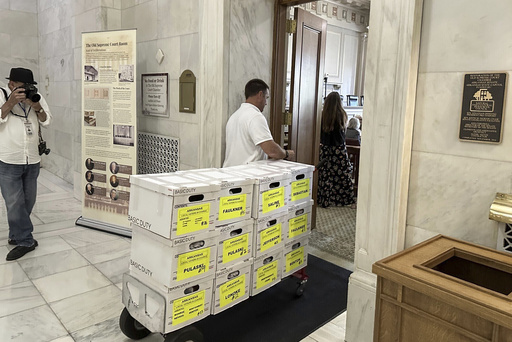A proposition to prevent a planned casino in Arkansas has officially made it onto the November ballot after supporters submitted more than enough signatures. The campaign, spearheaded by Local Voters in Charge, aims to block the establishment of a casino in Pope County. The group surpassed the required number of signatures, with at least 116,200 verified by the Secretary of State’s office, exceeding the 90,704 needed for qualification. If approved by voters, the proposed constitutional amendment would revoke the casino license awarded to Cherokee Nation Entertainment by the state Racing Commission in June.
Arkansas voters previously approved the development of casinos in four locations through a constitutional amendment in 2018, with Pope County being one of the designated sites. However, legal challenges have impeded progress on the casino project in Pope County. Local Voters in Charge emphasizes the importance of respecting the wishes of communities regarding the introduction of casinos, in line with the state’s motto “Regnat Populus” which translates to “The People Rule.”
Funding for the casino initiative comes from the Choctaw Nation of Oklahoma, with contributions totaling at least $5.3 million. On the opposing side, Cherokee Nation Businesses has provided $775,000 to support the campaign by Investing in Arkansas. Critics of the proposition, like Investing in Arkansas’ vice chairman Natalie Ghidotti, argue that the proposal is a tactic by the Choctaw Nation to safeguard its interests outside of Arkansas.
In a separate development, a campaign seeking to relax restrictions on Arkansas’ medical marijuana program faced a setback as they fell short of the necessary signatures. However, they have been granted an additional 30 days to collect more signatures. The proposed constitutional amendment aims to expand the scope of medical professionals authorized to certify patients for medical cannabis, building upon a measure approved by voters in 2016.
The Arkansas Supreme Court is currently deliberating on whether to overturn the Secretary of State’s decision to reject petitions for an abortion-rights ballot measure. The dispute centers on allegations that organizers did not comply with state regulations concerning documentation of paid signature gatherers. Despite the state’s contention, organizers maintain that they adhered to the law in their petition process.
